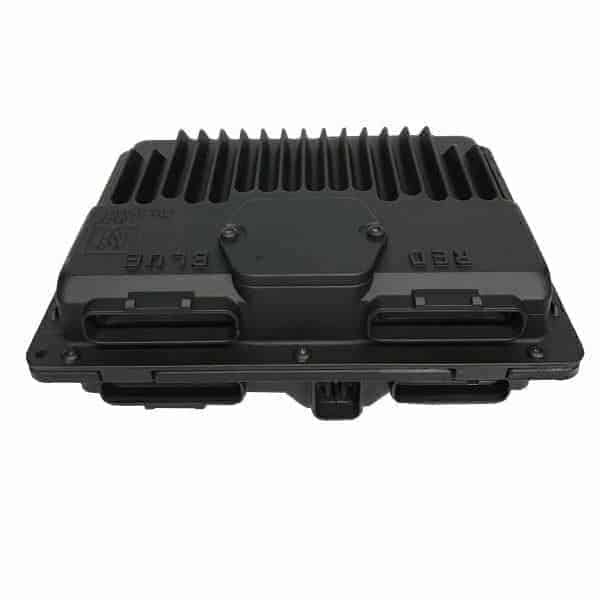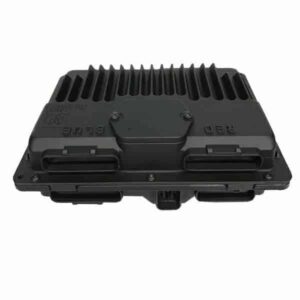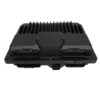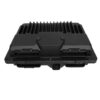Dealing with a finicky 1998 Blazer or Jimmy? If you’re chasing down frustrating issues like a persistent Check Engine Light, rough idling, stalling, or a no-start condition, the problem often points directly to the heart of your vehicle’s electronics: the Powertrain Control Module (PCM). As a technician with over two decades of experience, I’ve seen countless owners and even other shops throw parts at these symptoms, only to find the root cause was a failing PCM all along. This module is the brain of your engine and transmission, and when it goes, it can create a cascade of confusing problems.
This isn’t just a replacement part; it’s a complete, hassle-free solution. We are offering a genuine, used OEM PCM with service number 09355699. The best part? We take care of the most critical step for you. Before this module ships, we will program it with the latest official GM software, flashed specifically to your vehicle’s unique Vehicle Identification Number (VIN). This means you get a part that is truly plug-and-play, saving you a trip to the dealership and the high cost of their programming service. You get a reliable fix that restores factory performance and drivability without the headache.
Is Your GM Truck Showing These Telltale Signs?
- ✔ Persistent Check Engine Light with codes that won’t clear.
- ✔ Common Diagnostic Trouble Codes (DTCs) like P0601 (Internal Control Module Memory Check Sum Error) or other P06xx processor faults.
- ✔ Unexplained stalling or engine cutting out while driving.
- ✔ Harsh or erratic automatic transmission shifting.
- ✔ Complete no-start condition where the engine cranks but won’t fire up.
- ✔ Noticeable decrease in fuel economy.
- ✔ Failure to communicate with a diagnostic scan tool.
A Technician’s Notebook: The Intermittent Gremlin
I remember a ’98 GMC Jimmy S15 that came into my bay with an issue that was driving the owner crazy. It would run perfectly for days, then suddenly refuse to start. Other times, it would stall at a stoplight. The owner had already replaced the fuel pump and ignition coil. When I connected my scanner, I found no communication with the PCM. After checking the power and ground circuits to the module—which were solid—I knew the issue was internal. These PCMs can develop hairline cracks in the circuit board from years of heat cycles and vibration, causing intermittent connections. We installed a VIN-programmed PCM just like this one, performed the security relearn, and the truck ran flawlessly. It’s a classic failure mode for these vehicles.
Your Straightforward PCM Installation Guide
- ✔ Safety First: Always disconnect the negative terminal from your vehicle’s battery before starting any electrical work.
- ✔ Locate the PCM: On the 1998 Blazer S10/Jimmy S15, the PCM is typically located in the engine bay on the right-hand (passenger) side, often near the firewall or inner fender.
- ✔ Disconnect Connectors: Carefully unclip and remove the electrical wiring harnesses from the old PCM. These connectors have locking tabs, so be gentle to avoid breaking them.
- ✔ Remove the Old Module: Unbolt the old PCM from its mounting bracket. Keep the hardware as you will need it for the new module.
- ✔ Install the New PCM: Mount your new, pre-programmed PCM onto the bracket and secure it with the original hardware.
- ✔ Reconnect and Secure: Firmly plug the wiring harnesses back into the new PCM until they click into place. Reconnect the negative battery terminal.
- ✔ Perform Security Relearn (CRITICAL): Your vehicle’s Passlock security system will likely prevent it from starting until a relearn procedure is completed. Turn the key to ‘ON’ for 10-15 minutes (until the ‘Security’ light stops flashing), then turn it ‘OFF’ for 10 seconds. Repeat this cycle two more times. On the fourth try, the vehicle should start.
Verified Fitment For These GM Models
This PCM, identified by service number 09355699, is a direct replacement for a wide range of GM trucks, vans, and SUVs. It is also interchangeable with part numbers 16266645, 16250279, 16258815, and 09366810. Please match your part number to ensure compatibility. This module fits the following vehicles:
- 1998-1999 Chevrolet & GMC C/K 1500, 2500, 3500 Pickups (Gasoline)
- 1998-1999 Chevrolet Tahoe & GMC Yukon (Gasoline)
- 1998-1999 Chevrolet & GMC Suburban (Gasoline)
- 1998-1999 Chevrolet Express & GMC Savana 1500, 2500, 3500 Vans (Gasoline)
- 1998 Chevrolet Astro & GMC Safari
- 1998 Oldsmobile Bravada (w/o build date opt ZN4)
- 1998 Chevrolet S10 / GMC Sonoma (4.3L, w/o build date opt ZN4)
- 1998 Chevrolet Blazer S10 / GMC Jimmy S15 (w/o build date opt ZN4)
- 1998 GMC Envoy (w/o build date opt ZN4)
- 1998 Isuzu Hombre (4.3L, w/o build date opt ZN4)
- 1999 Cadillac Escalade
Frequently Asked Questions about this PCM
Do I really need to provide my VIN?
Yes, absolutely. Providing your VIN is essential. We use it to program the module with the correct software and the latest updates from GM for your specific vehicle’s configuration. This step ensures proper engine, transmission, and emissions system operation.
What is the ‘security relearn’ and is it difficult?
The security relearn procedure syncs the new PCM with your vehicle’s anti-theft system. It is not difficult and requires no special tools. The process involves a few cycles of turning the ignition key on and off, as detailed in our installation guide. It typically takes about 30 minutes to complete.
Is any other programming required after installation?
No. Because we program the module to your VIN before shipping, no further dealer programming is needed. After you install it and perform the security relearn, your vehicle should be ready to go.
This part is used. How can I be sure it’s reliable?
This is a genuine OEM part sourced from a salvaged vehicle. Unlike many aftermarket parts, OEM components are built to the manufacturer’s strict quality standards. Each module is inspected and then programmed with fresh, updated software, making it a dependable and cost-effective repair solution.
Will this fix my transmission shifting problems?
In many cases, yes. The PCM controls both the engine and the transmission. If the PCM is faulty, it can send incorrect signals to the transmission, causing harsh shifting, slipping, or delayed engagement. Replacing a bad PCM often resolves these types of issues.



